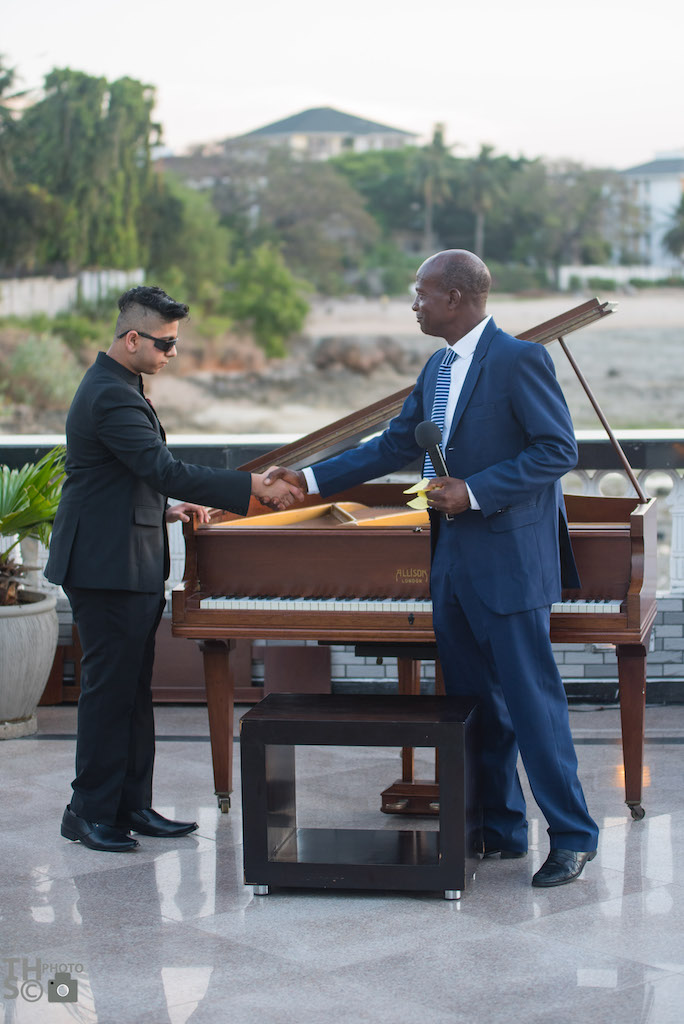Embodying pluralism through the art of music
An architect of sound, a philosopher and a freethinker is the way 19-year old Afraaz Mulji describes himself when asked about his love and passion for music. Born in Tanzania and raised in Canada, Mulji has been fascinated by sound since he was a toddler playing drums on pots and pans at home. His family supported this passion and enrolled him in formal lessons for tabla at the age of three, and piano and theory of music lessons by the age of nine. Now as a young adult, he plays a variety of acoustic instruments such as the piano, organ, drums, tabla, saxophone, and guitar.
Mulji shared this passion recently in early December duringa charity concert in Dar es Salaam to a full house crowd of 200 people, raising money for a charity who cares for orphans with HIV and learning disabilities.Having toured Canada, USA, and parts of Europe, this was his first non-profit debut in his homeland as a fully-fledged artist.
“I think music has a remarkable capacity to connect with people regardless of barriers, whether it be social, economic or political,” he said. “Music is a vehicle expressing the ineffable. My personal mission, which is to embody pluralism and the cosmopolitan ethic, is shaped by my artistic voice through music because I can say so many things about so many different cultures through one performance.”
And through this performance, he played various self-written musical pieces on the piano, which exemplified pluralism and “intermingling of culture” with inspiration from well-known artists, musicians, and architects.
Mulji explains that his life-long curiosity combined with his passion has shaped him as a free-thinker. He explained, “I was always propelled by my curiosity. When I got [formal music] lessons, which was basically saying, ‘these were the rules,’ I’d say, ‘why not break them? or ‘how can I break them? What’s the limit of this?’ I would always ask myself critical questions: what, when, how; all these contextual ideas which shaped my understanding of music.”
This has led him to design and eventually develop him own instrument called the “infinite sonic possibility controller,” which combines the sounds of the world’s instruments in one in a “super computer.”
“I realized that every instrument has a set of limitations.There are only a certain number of things I can do on a piano,” he said. “For my understanding, I have really taken everything possible that I can do with a piano and explored it totally. The piano is now something I’ve conquered. I want an instrument that’s going to challenge me; an instrument that I don’t have the talent to conquer. Basically, I want something to push me beyond anythingI have ever done before.”
The instrument is currently in design stage but he hopes that it serves to capture pluralism and cultures: from western symphony to pipe organs, and Indian instruments to African instruments. Meanwhile, he plans to pursue curatorial studies and eventually teach the art of music to the next generation as he has previously been a guest lecturer at the InternationalSchool of Tanganyika and University of Dar es Salaam.
Mulji said: “I want to give people material that engages them in a way which celebrates difference and celebrates it’s diversity because pluralism is an ongoing process. It’s not something that stops at any point in time. You have to constantly celebrate difference. I say forget tolerating, you have to celebrate difference. And that’s what embodying pluralism means.”

